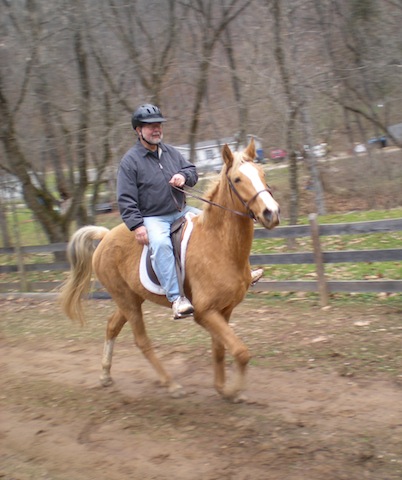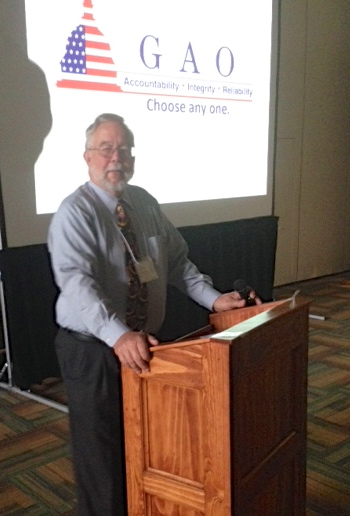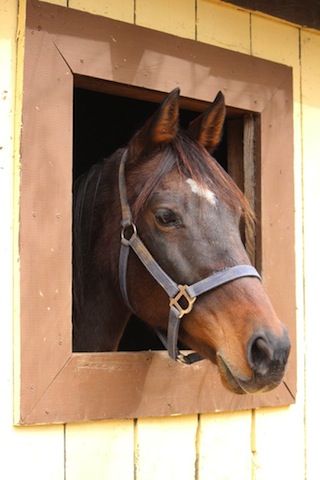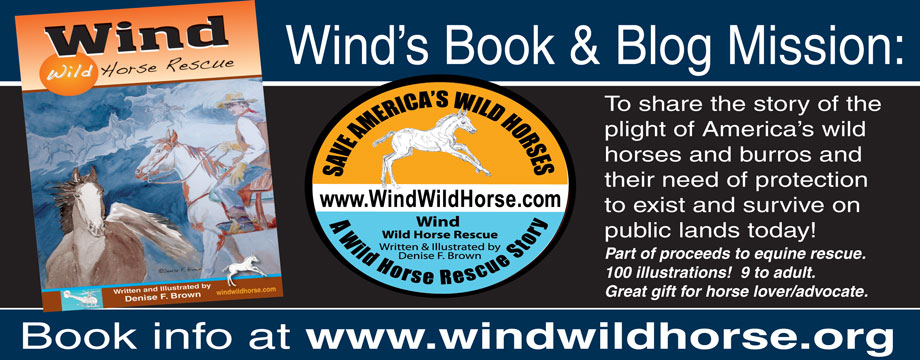Browse: Home / 2014 / January / 07 /
Q&A: John Holland, Equine Welfare Alliance 
Q&A: John Holland, Equine Welfare Alliance By Susan Salk on January 7, 2014 John Holland, president of the Equine Welfare Alliance with a couple of fillies John Holland, president of the Equine Welfare Alliance with a couple of fillies How an electrical engineer once heading up a robotics company servicing the nuclear industry came to be testifying against horse slaughterhouses later in life came down to a news article and a mare. “It was 2003 when my wife Sheilah brought home an article about PMU mares” whose urine is harvested to create estrogen treatments for women “and that article led to our decision to adopt a PMU mare,” says John Holland. And that decision is what led to what he jokingly refers to as the “downward spiral” into horse-welfare advocacy work, which includes the founding and presidency of 501 (c) 4 organization Equine Welfare Alliance, and many hours spent networking, testifying, and organizing on behalf of the horse. In this week’s Clubhouse
Q&A, Holland discusses his ongoing role in the slaughter debate, and his passion for horses, including his OTTB Honey Rose.
Q: What is the Equine Welfare Alliance? We formed in 2009 and envisioned we would be getting more into the political arena, but we wound up more in the educational arena instead. Over the years our membership has grown and we’ve networked, and focused on becoming an information gathering and disseminating organization, which holds yearly conferences, and talks a lot about slaughter.
Q: The Alliance lists 66 pages filled with individual members and 37 pages filled with participating organizations, including the ASPCA and many horse charities. How did the Alliance get so big? Holland enjoying the company of a treasured horse Holland enjoying the company of a treasured horse Interestingly, we do not solicit members, and we don’t charge dues. In fact, we rarely solicit donations unless we have a specific project. We’ve been pretty amazed at the growth ourselves! I think most of it comes from our insistence on accuracy in the information we present, and the fact that we offer so many resources that have been produced by our various members. Early on, I was introduced at a conference hosted by the Equine Advocates in New York and co-founder Susan Wagner introduced me by saying, “I have checked them out and they are the real thing.”
Q: What is the goal of the Equine Welfare Alliance? The goal of the Alliance is to improve the lives of equines worldwide. We are already thinking beyond the end of slaughter in the U.S. and working on strategies to reduce equine abuse and neglect. Considering all the money horses have made for us, all the universities that have equine programs, all the horse groups, the shows, the rodeos, and the indirect beneficiaries, it amounts to $102 billion a year according to the Deloitte Study, The National Economic Impact of the U.S. Horse Industry. Our goal is to become the gold standard of information on equine welfare. We gather data from a wide range of government sites, from state animal control and veterinary servi ces, etc. We have different members of the Alliance specializing on certain information gathering. For example, one member tracks weekly slaughter records from the USDA and compiles them on spreadsheets. Another member with a commercial driver’s license is able to find and track trucking violation records (of horse haulers) … each of our members brings his or her own talents to the effort.
ces, etc. We have different members of the Alliance specializing on certain information gathering. For example, one member tracks weekly slaughter records from the USDA and compiles them on spreadsheets. Another member with a commercial driver’s license is able to find and track trucking violation records (of horse haulers) … each of our members brings his or her own talents to the effort.
Q: Does the Alliance plan to lobby in Washington? Holland is always at the ready to make the case for horses Holland is always at the ready to make the case for horses We do not lobby in the true sense of the word. Instead, we try to provide government officials with information that they can use in the fight to lessen equine suffering, and we try to empower our members to establish relationships with their representatives, through which they can educate their representatives on main issues.
Q: In October you flew to New Mexico to testify as a volunteer expert witness in a hearing related to an effort to bring a horse slaughterhouse online there. The hearing I went to involved the plant getting a renewal of its discharge permits for waste. I spoke about the possible impact on the water table, which is only about 10 feet below the surface, and offered my opinion on the plant’s proposal to build a lagoon lined with plastic, like a big coy pond, to handle discharge.
Q: Although the plant was successful in that hearing, and won its permit, you are encouraged by budget talks in Washington, which could impact horse slaughter efforts in the U.S. The larger issue is that Agricultural appropriations committees of both the House and the Senate voted to kill inspections for horse slaughter plants. The president’s proposed budget also called for removing the ante mortem inspections, the before-death inspections, and this would greatly affect horse slaughter. Moreover, the measure to de-fund meat inspection for horse slaughter passed by a super-majority vote.
Q: You’ve owned horses most of your life, and even own a special OTTB named Honey Rose.
I got Honey Rose when she was 10. Her owner had died, and the horse had been kept in a stall her entire life. Although the rescuers did a great job getting her into good physical sha
good physical sha pe, she has deep insecurity from her life in isolation.
pe, she has deep insecurity from her life in isolation.
When she came here, I put her in the yard which has fences bordering three other horse areas. This allows new horses to get acquainted without the danger of fights breaking out. Unlike a normal horse, she was petrified by the vast expanse of a whole acre, so she invented an imaginary stall up next to the gate, and she didn’t leave it for two weeks.
It took her over a month to feel free to wander the entire yard.
I worried she would have a permanent lack of social skills, but the opposite was true. She quickly formed a friendship with another mare, who also had a hard time relating to the other horses. Soon, she was comfortable enough to integrate into the whole herd. She is just now getting trained, in fact, the trainer was here recently working on her ground manners and she is learning quickly.
Off-TrackThoroughbreds.com commends John Holland and members of the Equine Welfare Alliance for their dedication to a better life for our equine friends.

